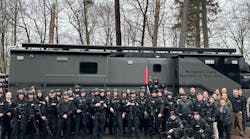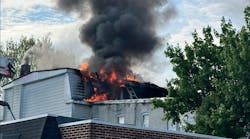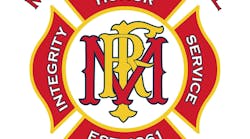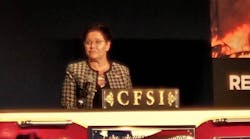There was some hope that the terrorist attacks of Sept. 11 would cause local officials to realize that they had to spend more money on fire-rescue services or, at least, think twice before ordering new budget cuts. But it doesn’t seem to be working that way. Some jurisdictions have come up with additional funds for hazmat and other anti-terrorism measures, but when it comes to the meat-and-potatoes – like hiring more firefighters to bring understaffed companies up to a minimum standard – you can forget about it. The word is out in many fire departments to hold the line or, worse yet, find more places to cut spending.
The situation is similar to the recession of 10 years ago, when local elected officials slashed fire-rescue budgets by closing stations and reducing the manpower on engine and ladder companies. They also cut funds for apparatus, equipment and training, along with fire prevention and arson investigation programs. There were promises that these “temporary” cuts would be restored when the economy improved, but in most places that never happened. The economy boomed in the mid-1990s; cities, towns and counties wound up with surplus tax revenue, but very little went back to the fire departments. Instead, the money was spent on police and schools, while politicians outdid each other in giving tax cuts to the voters – despite warnings that they would be in trouble when the good times ended.
The boom ended last year and now they have to curtail spending. Once again, fire-rescue is a prime target. What’s different this time is the terrorist threat and the public’s hero worship of their firefighters in the aftermath of 9-11. You can’t turn on television without seeing another tribute to “America’s new heroes.” But this love affair hasn’t translated into public awareness of the problems facing firefighters nor has it produced support for the issues that threaten everyone’s health and safety. Many local officials still think they can cut fire-rescue services without fear of arousing public opinion or being held accountable.
Those who are anticipating that huge amounts of federal aid will bail them out are going to be disappointed. Federal money is coming, but it’s going to be slow getting there and will be far less than expected. As previously reported in this column, members of Congress went on a binge to introduce billions of dollars’ worth of bills immediately after the terrorist attacks. Everyone wanted to get their name on a piece of legislation to help firefighters. But most of it didn’t have a chance of being passed and was quickly buried in the congressional committees, never to be seen again.
One bill that the fire organizations took seriously called for a federal program to spend $7 billion over a period of seven years to hire 75,000 firefighters. The federal funds would pay 75% of the salaries and benefits in the first three years, with local government taking over the full amount in the fourth year and beyond. It was aimed at solving the most serious problem facing many departments – understaffed companies. But guess where the opposition came from? You got it. Mayors, city managers, county officials didn’t like the idea of having to hire more firefighters and picking up the tab after three years. The hiring bill appears to be DOA, though an effort will be made to revive it later this year.
On a brighter note, Congress has passed a $150 million appropriation for the 2002 FIRE Act grant program. This is a $50 million increase, but only half of the $300 million that was authorized. Last year, 19,000 fire departments submitted 32,000 applications asking for $3 billion in matching grants! But only $100 million was available and only 1,800 grants could be awarded. While this year’s pool of money is 50% larger, it still has to be spread pretty thin and there will be fierce competition for every dollar.
However, there is hope that as much as $290 million in additional grant money may become available as part of a $20 billion emergency supplemental appropriation. There also are reports that President Bush will include more federal aid for fire departments as part of a major Homeland Security package to be introduced early this year, perhaps in his State of the Union message.
There is no doubt that the fire-rescue service will get a substantial increase in federal aid as a result of the terrorism war and the threat of more attacks. But it’s no where near the billions that were talked about immediately after the 9-11 disasters and it won’t make up for the shortfall in state and local tax revenues. The harsh realities of a full-blown recession already are taking a toll on fire department budgets and it’s unrealistic to think that individual fire chiefs can fight city hall. Any chief who dares to publicly oppose his mayor or county executive will lose his job.
It’s up to the fire organizations to take the lead in a national effort to educate and mobilize public opinion so that the goodwill everyone feels toward firefighters can be utilized in a positive way. The public has to be told the blunt truth: that more firefighters are needed and that many fire departments are operating dangerously under-staffed fire companies. They also should know that the first responders they’re depending on need huge amounts of federal aid for the training and equipment that’s necessary to deal with a massive biological or chemical attack.
The fire-rescue service has lost too many political battles because it didn’t have the support of public opinion. Now, for the first time, we’ve got their attention and there’s a chance to get the public involved. A terrible price was paid for this outpouring of affection for the nation’s firefighters, but it will all be wasted if it’s not harnessed and used to achieve some important goals.
Hal Bruno, a Firehouse® contributing editor, retired as political director for ABC News in Washington and served almost 40 years as a volunteer firefighter. He is a director of the Chevy Chase, MD, Fire Department and chairman of the National Fallen Firefighters Foundation.




